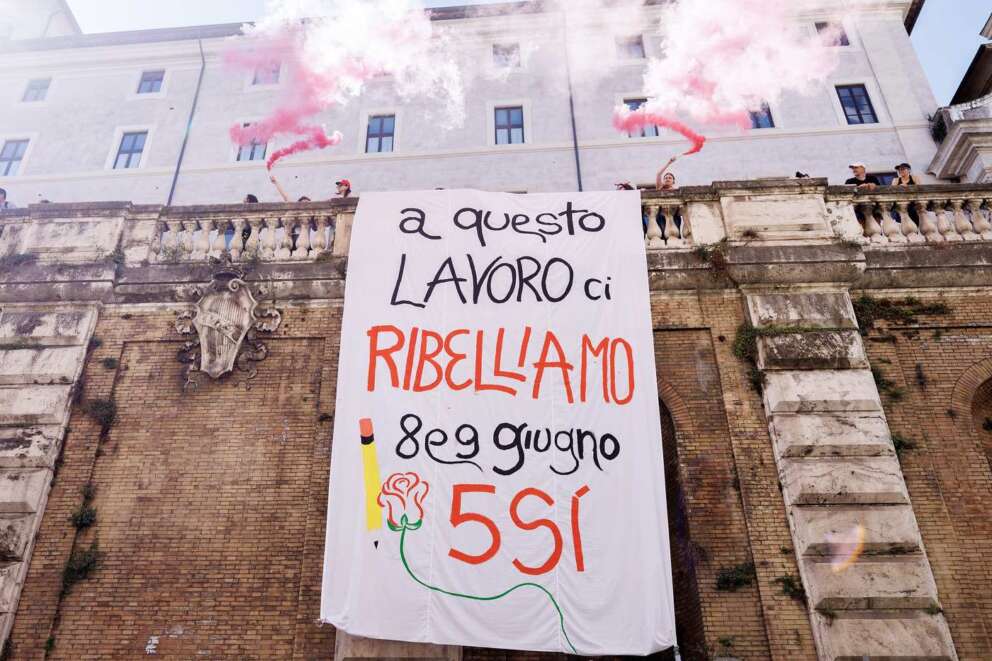Slaveholders fear the referendum, but they can rest assured: the bulk of politics is not on the side of workers

Arrested in Catania for gangmastering
Who knows why almost always the bulk of the political parties, at the moment of conflict, are always on one side of the barricade that is not that of the workers?

The Catania Public Prosecutor's Office requested and obtained the arrest, under house arrest, of some managers of a supermarket who had enslaved several workers. They made contracts of 700 or 800 euros per month, for a few hours of work, and then they demanded that the workers remain on the hook for more than 12 hours a day, without rest, without holidays, and of course without overtime. In the end, the hourly wages reached up to one euro and sixty cents per hour worked.
The prosecutor of Catania Curcio, who coordinated the investigation, explained how these workers were forced to submit to slave traders because of the conditions of absolute poverty in which they found themselves. They were ready to do anything just to scrape together a few hundred euros at the end of the month. Poverty became - or rather: becomes, because who knows how many other workers find themselves in their conditions - an instrument of oppression. Who knows what those who have demonized the citizen's income think. In these cases we are talking about exploitation. In this newspaper we have explained several times that it is not about exploitation. Exploitation is the normal condition in which workers act who receive wages lower than what they produce. Even wages of 10 or 20 or 30 euros an hour. It is the famous theory of surplus value, which is absolutely scientific and undeniable. When exploitation - which is legal - exceeds certain limits, it becomes slavery . Obviously paying one and a half euros an hour is slavery.
The left has proposed to establish by law a minimum wage, setting it at nine euros gross, which is a very low ceiling, to be honest. At nine euros an hour, if you work 36 hours a week, after paying taxes and social security you barely exceed a thousand euros a month. The left's proposal, however, was rejected with disdain by the government, which maintains that paying such high minimum wages would damage the economy and that the value of a salary should be set by negotiation. Like the one they did in Catania: "if you want to work, be happy with one and a half euros and thank the boss".
What does all this have to do with the referendum on the Jobs Act ? It has a lot to do with it, because the Jobs Act, by abolishing the conquest of the Workers' Statute (obtained by the socialists in 1970), significantly and clearly weakens the bargaining power of workers. Entrepreneurs, without the statute, have much more possibilities to fire their employees, and therefore to threaten and blackmail them. Like those at the supermarket did. The slave drivers, the gangmasters, fear the referendum, even if they know they have such a political alignment in their favor that they don't risk much. Who knows why almost always the bulk of the political alignments, at the moment of the clash, are always on one side of the barricade that is not that of the workers?
l'Unità






